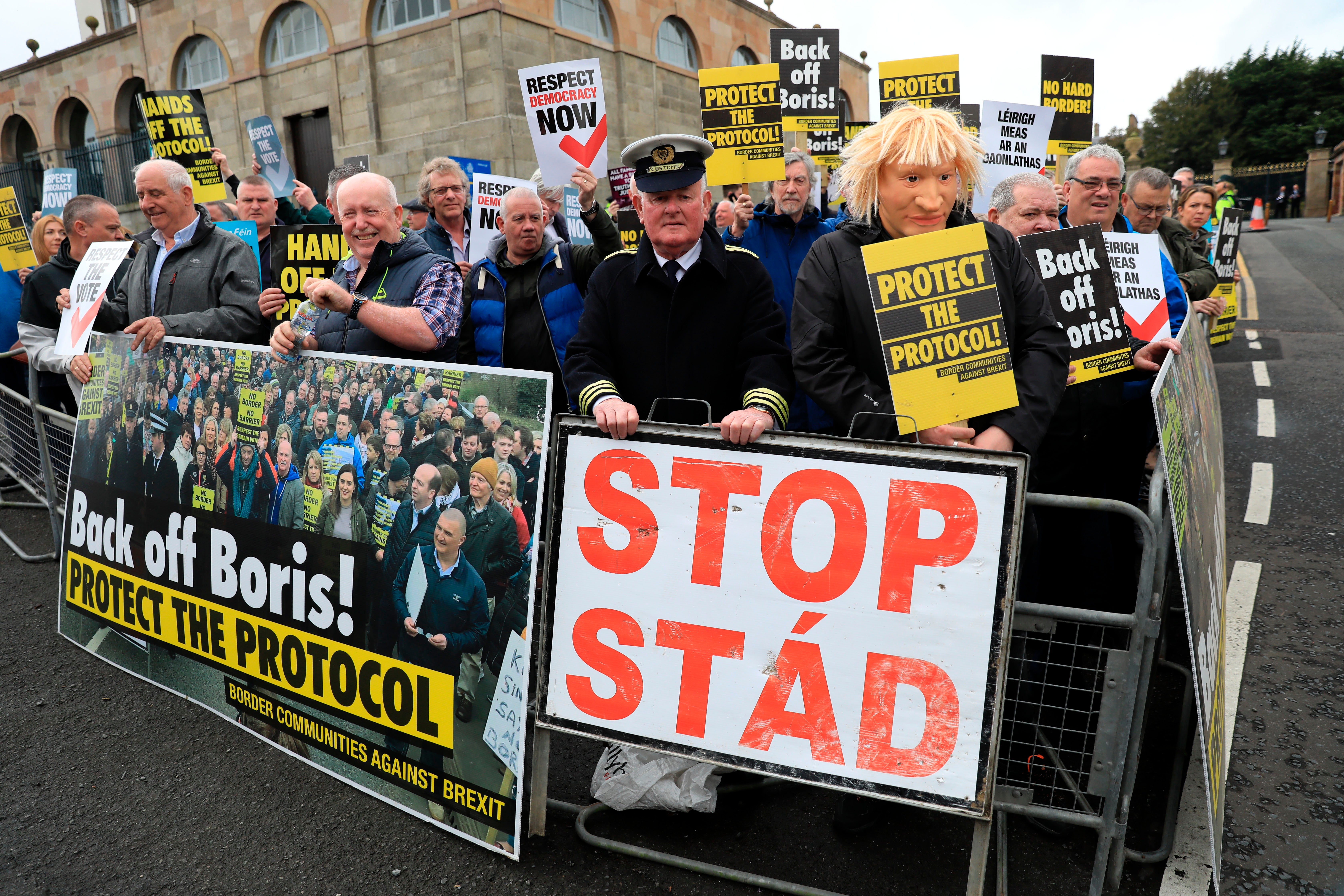It’s in Britain and the EU’s interests to calmly resolve the Northern Ireland protocol crisis
Editorial: There can never be a good time to risk a trade war but this would be a truly destructive one

The situation in Northern Ireland needs cool heads. It is overwhelmingly in the interest of the people of the island of Ireland, north and south, that the UK and the EU should reach a calm and orderly resolution to the genuine difficulties the Northern Ireland protocol has created.
It is also overwhelmingly in the self-interest of the UK and the EU that there be as open trading conditions between the two entities as possible, following the UK’s withdrawal from the union. The difficult current economic environment – with Britain’s GDP shrinking in April – makes it all the more vital there are no additional barriers to trade. Indeed, a trade war between the UK and its largest export market would be economic madness, not least for the people of Ireland.
Yet there is a very real danger that we might slide into this. The need to make the protocol work more smoothly is not in question, but the government’s proposed revisions to it are unnecessarily divisive. There is a sharp division within the UK, for Boris Johnson claims that the changes “are not a big deal”, whereas Keir Starmer argues the difficulties with Brussels could be resolved “around the negotiating table with statecraft” and not with legislation that “breaches international law”.
Sir Keir is a lawyer, and an eminent and experienced one. The prime minister is not. The legal aspects of the tussle will be discussed in the coming days, but it is already clear there is an atmosphere of profound distrust between this government and its European counterparts. Ireland’s foreign affairs minister, Simon Coveney, made this point succinctly. The plan would “ratchet up” tension and breach the UK’s international commitments.
The EU has not been blameless – it was the EU that temporarily invoked the crucial Article 16 of the protocol in January 2020 over the distribution of Covid-19 vaccines. As the Institute for Government explains, that action was swiftly reversed after protests from both London and Dublin. Ironically that was one of the few instances where the UK and Irish governments were in total alignment in their attitude to a cross-border trading issue.
But there have to be negotiations and now the burden on making them work does depend on a more cooperative approach from the UK government. It is absolutely the wrong time to ratchet up the tensions. All negotiation requires trust, slowly and carefully built up, but quickly destroyed. Sadly, there are internal political reasons within the Tory party – including those jockeying for succession to the post of prime minister – why it might suit it to ramp up the fight with Brussels. It would be tragic if this were to happen. This issue is too important for that.
To keep up to speed with all the latest opinions and comment, sign up to our free weekly Voices Dispatches newsletter by clicking here
The coming few weeks are crucial in two broad ways. The first concerns the long-term economic relationship between the UK and Europe. The coming talks start off on a bad foot, but that does not mean that they cannot reach an accord. That is important in itself, but it is even more important for the future, for the outcome will shape the entire trading relationship between the two sides for years to come. Whatever the views people hold about the wisdom of Brexit – and the most recent opinion polls signal a majority regretting it – there can be no debate about the need for close economic relations.
The second issue is the overall prosperity of the UK and the EU in what will inevitably be a difficult period. The past few days have seen a collapse in confidence, with sharp falls in major financial markets. Both sterling and the euro have declined against the dollar, which is seen as a safe haven.
A global economic recession looms. There can never be a good time to risk a trade war but this would be a truly destructive one.



Join our commenting forum
Join thought-provoking conversations, follow other Independent readers and see their replies
Comments